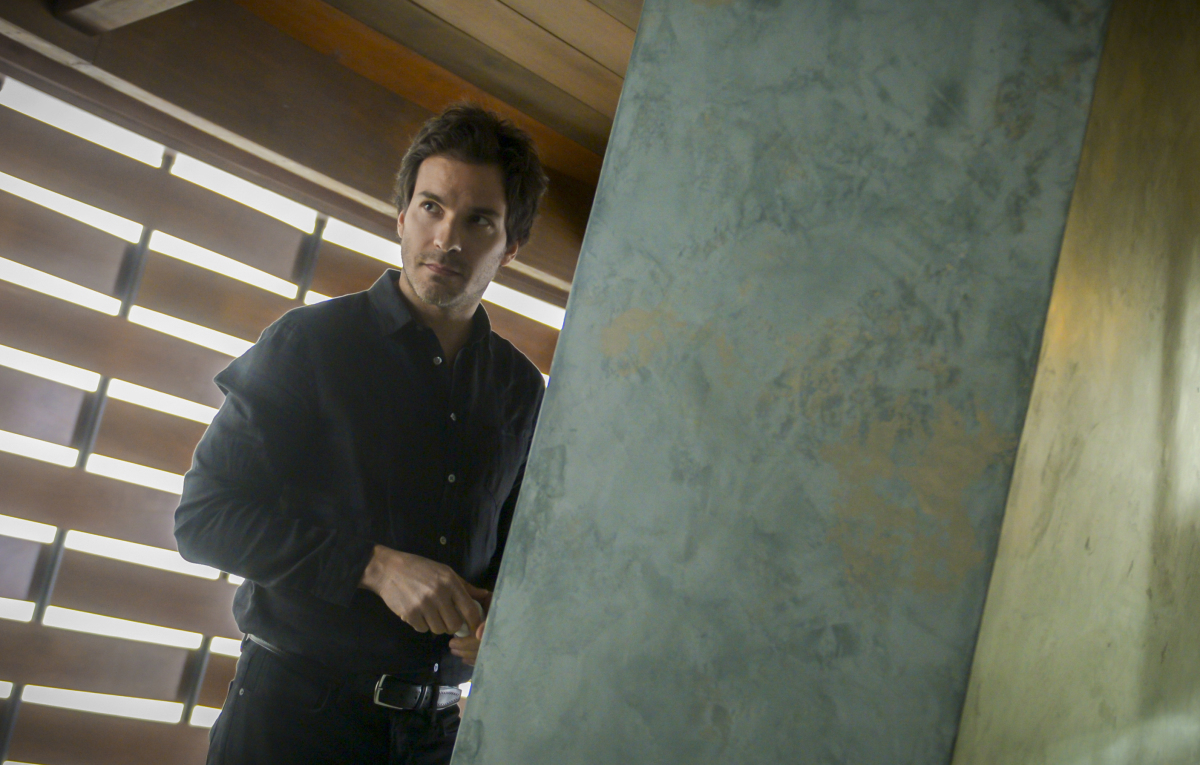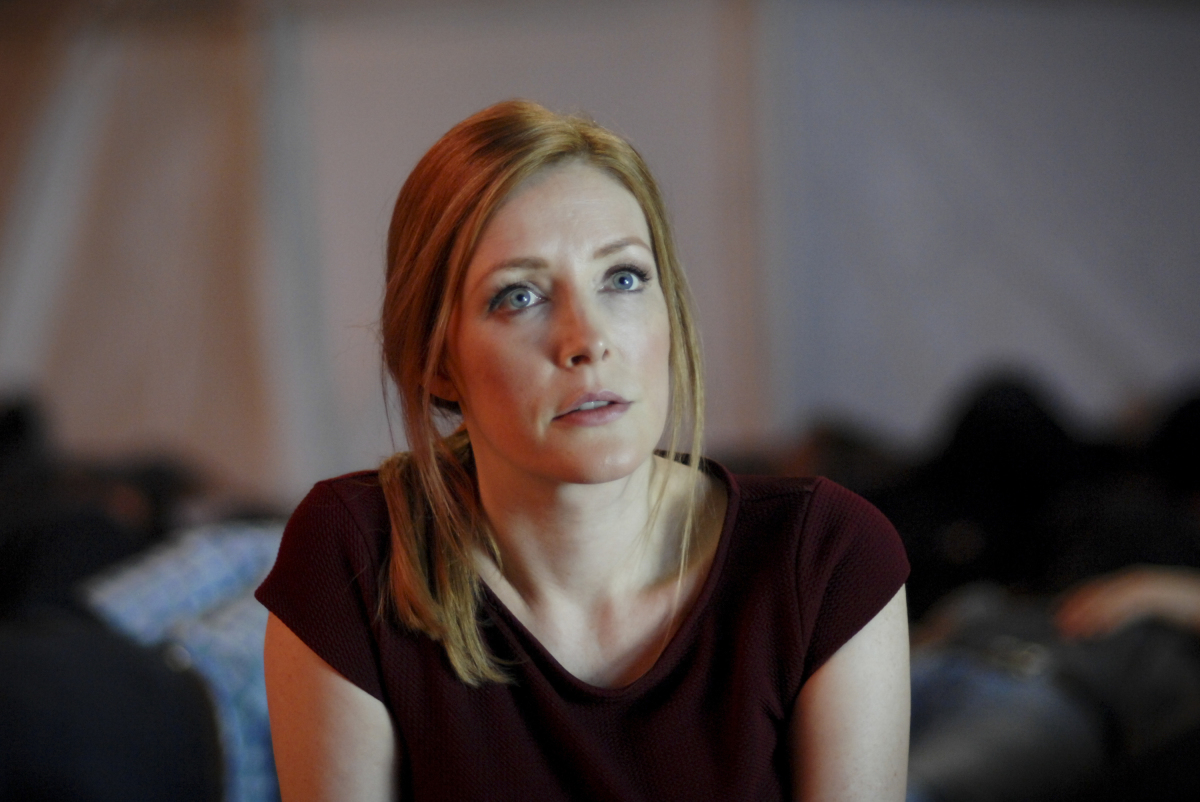'Salvation' Asteroid Thriller Returns for Season 2: How Far Will Humanity Go to Survive?

Kruger and fellow co-creator and showrunner Craig Shapiro told Space.com that Season 1 explored the geopolitics of an asteroid threat — whose responsibility it was, where it would land, whether one country could divert it to threaten other countries and how different political bodies might fight to develop technologies to stop it first. This season, an outside organization forces countries to cooperate.
And that cooperation brings even more interesting solutions for stopping the asteroid, beyond the EmDrive created by tech billionaire Darius Tanz (played by Santiago Cabrera) and MIT graduate student Liam Cole (played by Charlie Rowe) in the previous season, to propel a gravity tractor that's ultimately unable to divert the asteroid. Like last year, the show creators consulted with Phil Plait, the space blogger known as the "Bad Astronomer," for science advice.
"We said to Phil that essentially, this season, we wanted Darius and Liam to have opposing viewpoints on how to solve the problem," Kruger said. "We linked into existing technology which comes up in the first episode, which is the idea of a rail gun and the idea of a solar sail."
"We had this idea to repurpose a supercollider," Shapiro added, referring to the miles-long physics instruments scientists use to smash particles together. "We took a superconducting supercollider and turned it into a ginormous rail gun [that could] knock that thing off course, if you could shoot thousands of [shells]."
Another idea floated in the first few episodes of the season is to paint half of the asteroid to make one side heat up faster than the other and push it off course.
"In the case of an asteroid, there's a lot of different ideas out there as to how we can solve these problems," Kruger said. "As you know, we've never really had to solve this problem before. If we were solving it correctly, scientifically perfectly, then we would probably have a Nobel Prize. Advancing science is something that we leave to the scientists.
"But what we do is, take existing concepts and explore advancing the science in a fictional sense," she added.
Get the Space.com Newsletter
Breaking space news, the latest updates on rocket launches, skywatching events and more!
While the global players have changed, this season of "Salvation" will be the same fast-paced combination of genres as last season, the creators said. (Plus, there's still a huge spaceship Ark that nobody's flown — but the creators wouldn't say if the show will make the leap to full-blown space drama.)
"We've always said the show is part thriller, part 'The Martian' and part love story, all wrapped into one," Kruger said. "It's a sci-fact adventure."
"It has a lot of thriller aspects to it as we dig into how governments come into play, and there's different factions, and coups, all within the pressure cooker," Shapiro said. "When you put that kind of extinction-level event on top of the whole story, it's infused into all the scenes, including the ones that have nothing to do with an extinction-level event. All the human relationships are fused like diamonds; it's very intense."
This season will follow the characters' personal journeys, they said, with particularly dramatic highs and lows for Tanz and Grace Barrows (played by Jennifer Finnigan), who has become a special adviser to the U.S. president. At the beginning of the season, Barrows will still be dealing emotionally with having killed someone.

"In movies and television, people are mowed down all the time," Shapiro said. "But in the world that we're trying to play, which is a little more grounded … it still has emotional consequences, and she's wrestling with it through the first few episodes. And that takes you to places that you just don't expect."
So viewers can expect sweeping global threats, political drama and a focus on the deeper emotional lives of the characters as they struggle to save the world while everything crumbles beneath them.
"This show has never really been about asteroids," Kruger said. "It's really about how far will we go to survive when faced with what feels like extinction-level events. When the world seems as dark as it can be, how do we not lose hope when it feels like all is lost?"
But "at the end of the day, it's not dystopic — it's still fun," she added.
"Salvation" airs at 9 p.m. EDT/8 p.m. CDT on CBS.
Email Sarah Lewin at slewin@space.com or follow her @SarahExplains. Follow us @Spacedotcom, Facebook and Google+. Original article on Space.com.
Join our Space Forums to keep talking space on the latest missions, night sky and more! And if you have a news tip, correction or comment, let us know at: community@space.com.

Sarah Lewin started writing for Space.com in June of 2015 as a Staff Writer and became Associate Editor in 2019 . Her work has been featured by Scientific American, IEEE Spectrum, Quanta Magazine, Wired, The Scientist, Science Friday and WGBH's Inside NOVA. Sarah has an MA from NYU's Science, Health and Environmental Reporting Program and an AB in mathematics from Brown University. When not writing, reading or thinking about space, Sarah enjoys musical theatre and mathematical papercraft. She is currently Assistant News Editor at Scientific American. You can follow her on Twitter @SarahExplains.









